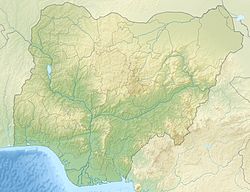| Nganzai funeral attack | |
|---|---|
| Part of the Boko Haram insurgency [1] | |
| Location | Nganzai District, Borno State, Nigeria |
| Date | 27 July 2019 10:30 GMT [2] |
| Target | Civilians returning from a funeral |
Attack type | Shooting |
| Deaths | 65+ [2] |
| Injured | 10 [2] |
| Perpetrators | Boko Haram |
On 27 July 2019 a squad of Boko Haram terrorists opened fire on a group of people walking from a funeral in Nganzai District of Borno State, Nigeria. At least 65 people were killed in the attack and 10 injured people were hospitalized. [2] The attack occurred as part of the Boko Haram insurgency. [3]
